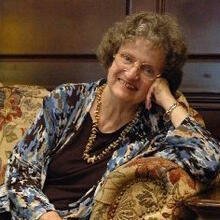"Let him easter in us," wrote Gerard Manley Hopkins in his poem The Wreck of the Deutschland. In this case easter is a nautical term. It means steering a craft toward the east, into the light. Throughout the 40 days of Lent we have been heading toward the light, trying to shake the darkness, the doubts, the burdens of living, the heaviness of heart. By walking with Christ, letting him easter in us, we mean to turn in the right direction. But some of our burdens are not so easily shed. I deal with a chronic illness: my hands are cramped by arthritis; I can’t walk as far as I once did; I rely on a cane; I depend on the kindness of others. Though I continue to work, write and travel, I sense my limits.
One way I can respond to this is by a downward spiral, saying everything is going straight to hell. Others who are dear to me are in crisis too. Friends struggle against cancer, must undergo therapy and surgery.
And then there is the onslaught of daily news: political confrontations, disasters of every kind and the chicanery involved in dealing with them. There is the question of whether my country’s principles have been violatedor were they a fantasy to begin with?
We wonder about ourselves, what our lives are adding up to. Have we squandered our chances? Made good choices?
Anxiety escalates. Left unchecked, it rockets out of control, putting us in a Gehenna of our own making.
Hopkins knew about this. He was a man plagued by frailty and weakness, not just physical but psychological. At times he would plummet into an abyss of darkness, what he called cliffs of fall. The steep dropping-off places of the soul seemed worse than any physical distress. This, therefore, was Hopkins’s prayer, his hope: Let him easter in us, be a dayspring to the dimness of us.
What will divert me from that downward spiral, those cliffs of fall?
SomethingI think it is gracebrings me into the garden with Jesus.
And when I let Christ easter in me, I am changed in ways I do not fully understand. Christ in me can transform my attitude, give me a simpler outlook, a more childlike hope.
A story appears in The New York Times about the Robinson family in Violet, La. They are living in the middle of a desolate stretch in St. Bernard Parish, one of the hardest hit sections of the state. Their blue house with white trim is uninhabitable. But the Robinsons have come back to lot number 6429 and have begun life again in a government-issued trailer. It is a 45-minute drive to the Wal-Mart in Gretna, their best option for grocery shopping. Mail service is lacking. Electricity is scarce. Nothing remains of their former civilization except their cellphones and church.
Amazingly, they are not alone. Some 8,000 people of the former 70,000 have returned to repopulate St. Bernard Parish. Their future is uncertain. Little guidance has been given for cleaning, gutting or rebuilding their homes. They try to rebuild on their own. They gather and remember the gatherings of the past, the $400 worth of shrimp in the freezer that was lost when Katrina came through. That shrimp had been stored for the next party, for these are celebrating people, people who love a good time.
As neighborstheir names are Brunet, Dauterive, Napolitanoall are mourning for the sense of community they once had. They come close to tears when they remember the pre-hurricane times. The lives they had have been swept away. Bryan Brunet remembers the house he built from scratch, the wiring, the contracting. He could do it again. But will the government support his desire to return? Will other neighbors return? Will the effort be worthwhile?
The people who live in St. Bernard Parish have no clear vision about the future. But even when things look bad, they stay put. They hold on. They cling to some sense of recovery, some glimpse of restoration. They set their hearts on rebuilding; they dream; they plan. They are people of hope.
Hope is not certainty. Hope is not settled cheerfulness. Hope is sometimes described as hope against hope.
When Gerard Manley Hopkins wrote his poem, he was dealing with a disaster that completely baffled him. He dedicated his poem to the memory of five Franciscan nuns drowned between midnight and morning of Dec. 8, 1875, when the German ship Deutschland went down. He says theirs is a happy memory, but that is a convention in speaking of the dead. Really what he says in the poem is that God is beyond our grasp.
Yet he prays that Christ will easter in us, be a dayspring to the dimness of us.
That is our hope.







